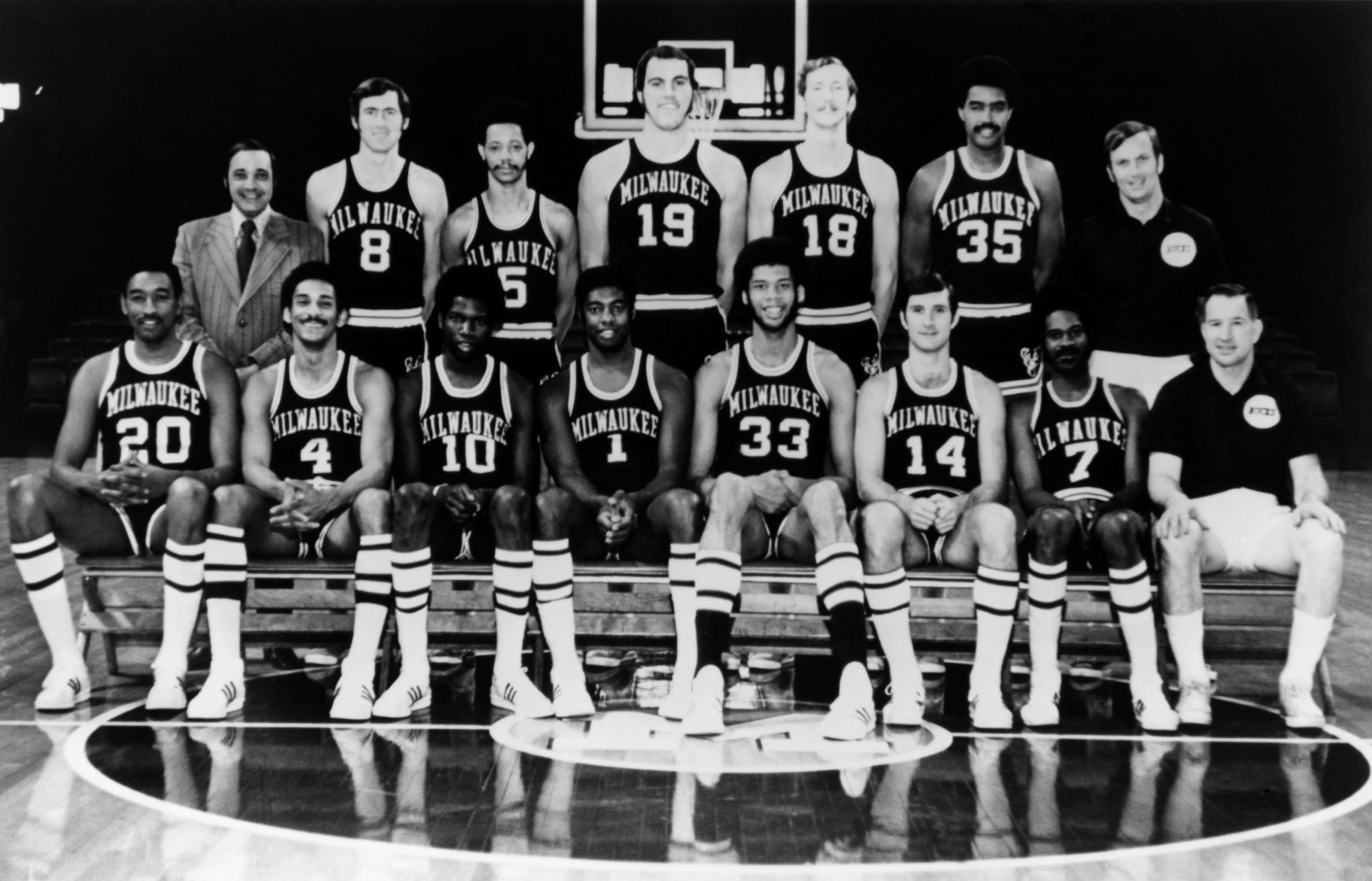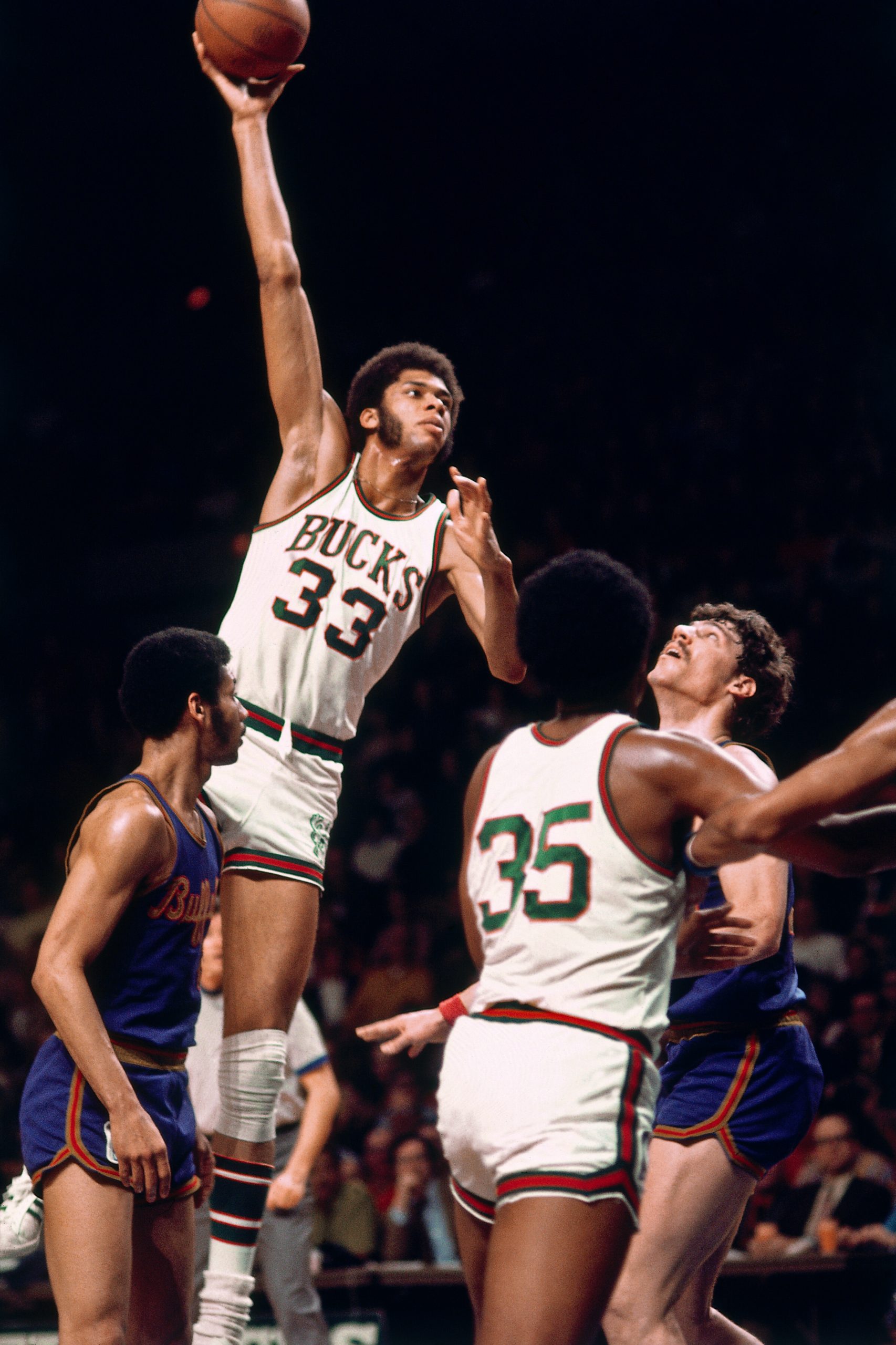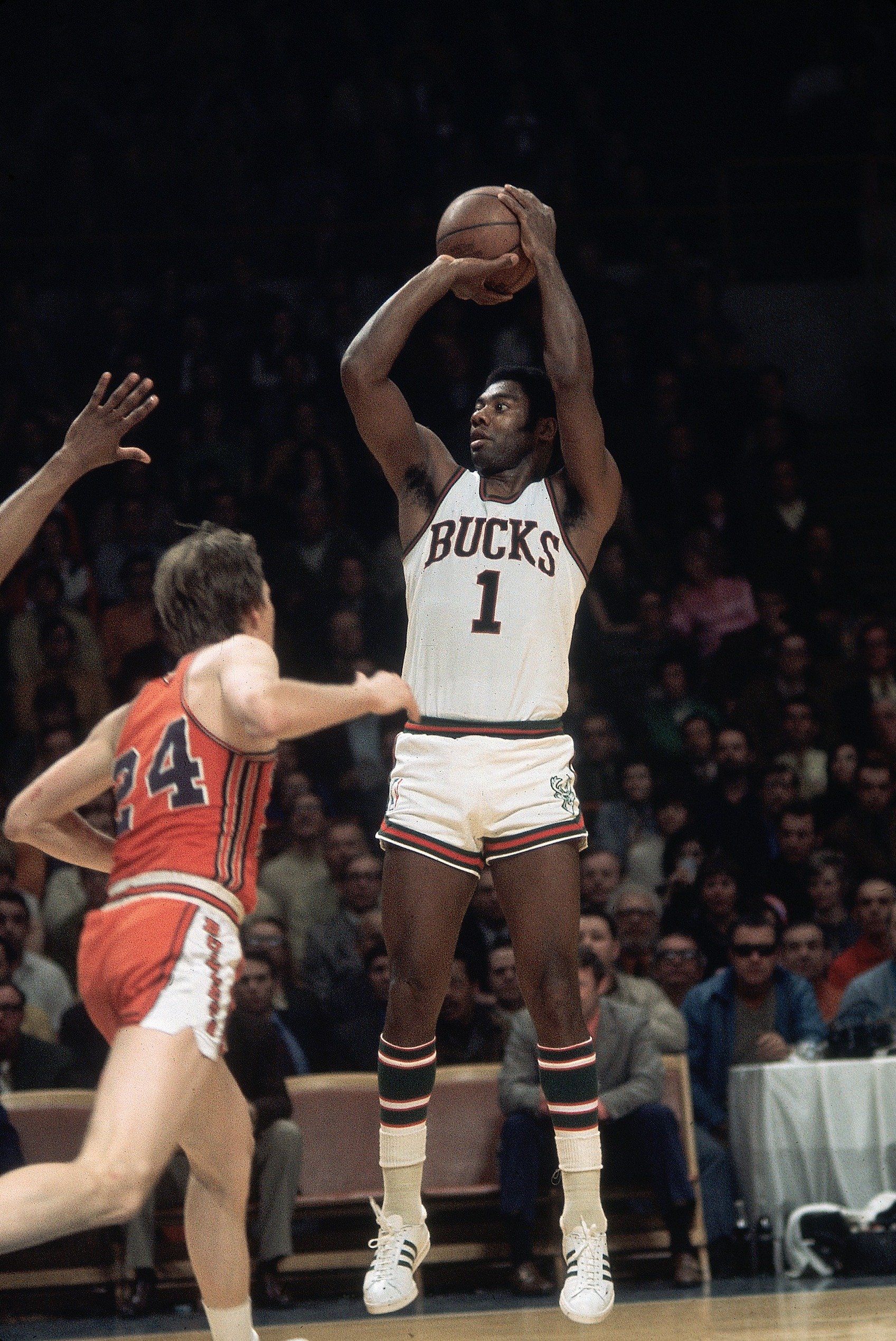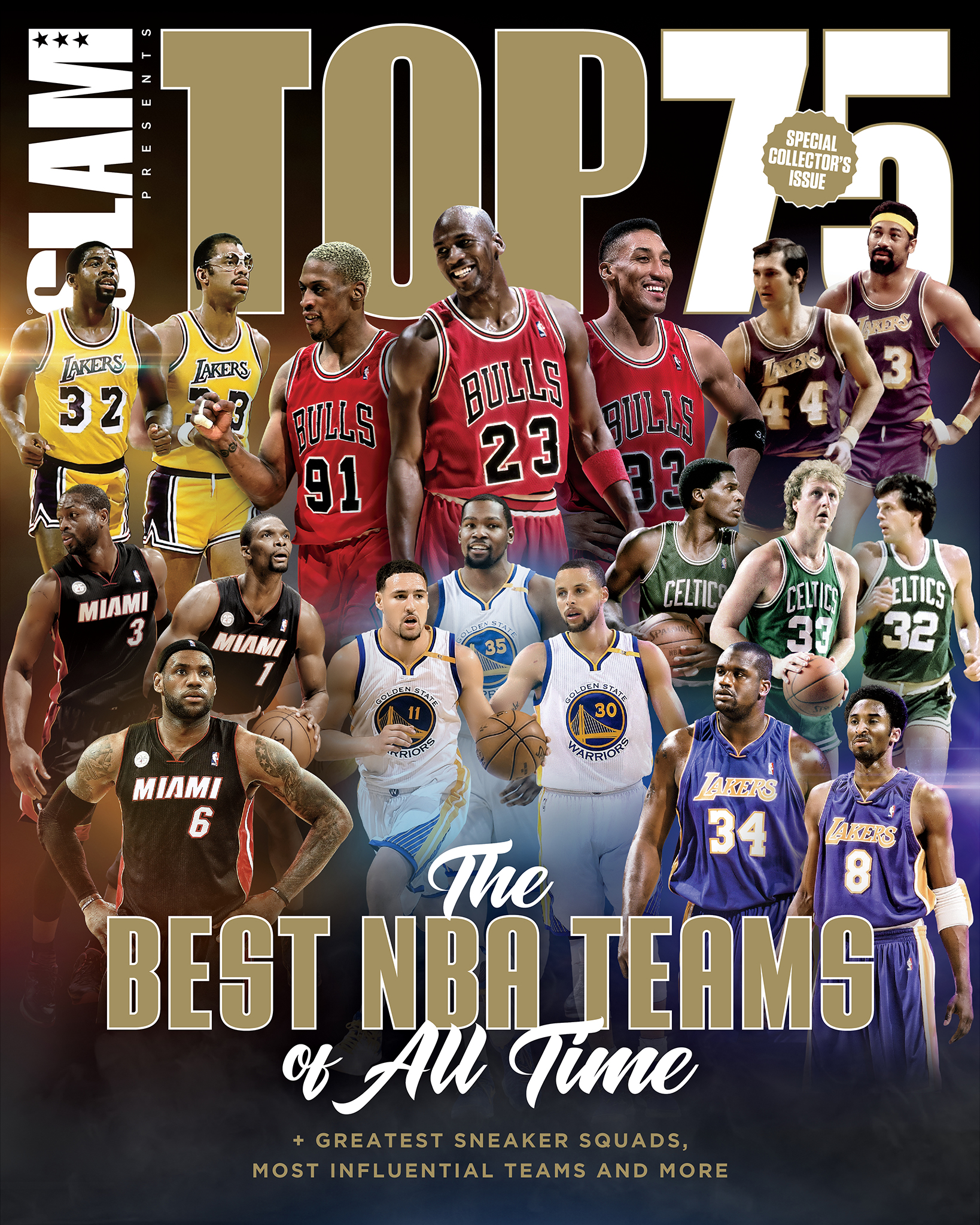This week, we’re unveiling the rest of our TOP 75 NBA Teams of All Time, which is featured in an entire special issue dedicated to ranking the best 75 individual season teams ever (shop here). To find out who else made it on the list, read here.
5. 1970-71 Milwaukee Bucks

Coach: Larry Costello
Record: 66-16
Roster: Kareem Abdul-Jabbar, Lucius Allen, Bob Boozer, Dick Cunningham, Bob Dandridge, Gary Freeman, Bob Greacen, Jon McGlocklin, McCoy McLemore, Oscar Robertson, Greg Smith, Jeff Webb, Marv Winkler, Bill Zopf
When fans and media talk today about some of the “unicorns” who populate the NBA, and marvel at seven-footers who have the athletic ability of players a foot shorter than them, there is something of an underlying belief that stars from the old days would be hopelessly overmatched in any competition with today’s heroes.
In some ways, they are correct. It’s hard to imagine some of the plodding big men of the ‘70s having any shot against Giannis Antetokounmpo or Joel Embiid. But anyone who knows basketball will stop the discussion with one reference: Kareem Abdul-Jabbar. In 1969, the Bucks won a coin flip with Phoenix to earn the rights to draft the UCLA center, who had posted an 88-2 record and won three national titles with the Bruins. It was a seminal moment in the history of the franchise, which was just a year old at the time.

Abdul-Jabbar won the Rookie of the Year award for the ’69-70 season and averaged 28.8 ppg and 14.5 rpg. He was 7-2, but had rare speed for someone that tall and the kind of basketball skill that could not be found in NBA frontcourts.
By the time the ’70-71 season dawned, the Bucks and Abdul-Jabbar were ready for more than just an Eastern Finals appearance. It didn’t matter that the big fella was in just his second year in the League. He was already a superstar and proved it again in ’70-71 by averaging 31.7 ppg and 16.0 rpg and winning the League’s MVP award.
And before the season, Milwaukee added another legend, Mr. Triple-Double, Oscar Robertson. Although the Big O had 10 years of wear on his tires, he was still extremely dangerous and gave the Bucks the kind of backcourt production they needed. Any team that wanted to double (or even triple) the post would have to deal with one of the best all-around players in NBA history. How was that for a pairing?

But the Bucks were way more than a two-man team. Forwards Bob Dandridge and Greg Smith were productive counterparts to Abdul-Jabbar, while Jon McGlocklin’s ability to score from the midrange and off the dribble created trouble for opponents concentrating on anyone else.
There wasn’t a lot of depth—forward Bob Boozer and guard Lucius Allen were the main bench weapons—but it didn’t matter. The Bucks rolled to 66 wins—14 better than the next-best NBA team. They won the Midwest Division by 15 over the Bulls and cruised into the playoffs as the prohibitive favorites to win it all. The Bucks led the NBA in scoring and were third in fewest points allowed. They shared the ball like no other team and hammered the boards.
The Bucks bolted to a 3-0 series lead in their Western Semifinal series against San Francisco, and though the Warriors took the fourth game, Milwaukee rebounded to close out the Warriors in resounding fashion, 136-86. The Lakers took a game from the Bucks in the Western Finals, after Milwaukee had won the first two of the series at home, but that was all L.A. could muster. Milwaukee throttled the Lakers in the next two games to earn a Finals clash with Baltimore, which had outlasted the defending NBA champion Knicks in the East.
The Bucks made the Finals a ho-hum affair by sweeping away the Bullets and winning all but one of the four games by double digits. In fact, Milwaukee did not trail at the intermission of any game—quarters or halves—and were not in significant trouble at any time. Abdul-Jabbar was the MVP, and Robertson and Dandridge made key contributions throughout the series. No expansion team ever won a title more quickly than did the Bucks.
Then again, no other team had Kareem Abdul-Jabbar.

Tap in now to get your copy of SLAM Presents TOP 75 NBA Teams Of All Time.
Photos via Getty Images.